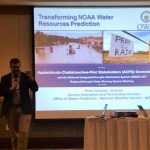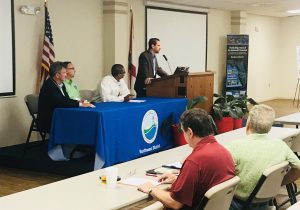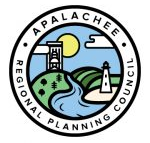- The City of Carrabelle is hosting two public meetings for input on the McKissack Beach Land Management Plan. Meetings will take place at 6 p.m. eastern time at Carrabelle City hall on January 16th and on February 10th. We will be discussing future use of the land, which is leased from the Florida Department of Environmental Protection (FDEP). Pease come out and help shape the conversation.”The Land Management Plan being prepared by the Apalachee Regional Planning Council, can be viewed here: McKissack_LMP_01172020. We look forward to any questions or comments regarding any part of the plan. Based on initial interviews we would appreciate input regarding these questions (The (#s) refer to the sections in the draft plan.)
- How to to identify, locate, protect and preserve listed endangered or threatened plant or animal species (18)?
- How to enhance the beach, dune and marsh ecosystems (20)?
- What are the desired outcome for this property, and key management activities necessary to achieve the desired outcome, including public access (23, 32)?
- Should there be designated areas for beach fishing and swimming?
- Should areas be closed at certain times for nesting birds, turtles, etc.?
- Should dogs be restricted on the beach, near nesting areas, etc.?
- How should litter be discouraged, enforced, collected and removed?
- Should the dune at the end of Gulf Beach Drive be restored or the cut maintained?
- Should the parking area at the end of Gulf Beach Drive be eliminated, expanded, resurfaced?
- How should driving on the dunes and beach be addressed?
- Should there be a board walk over the dunes?
- Should there be restroom facilities?
- Should vehicles and boats be prohibited in the marsh areas?
- Should the City, County, Fish and Wildlife Commission or a private entity manage the property (26?
- Who is responsible for posting, litter, enforcement, etc.?
- How can the cost to the City and taxpayers be minimized)?
- Should the property generate revenues to enhance the management of the property (27)?
- Donation box?
- Fundraising events?
- What management techniques be used to control exotic plants and species and restore dunes and natural ecosystems (34)?
- How can land management provide value to abutting residential and commercial properties (35)?
- Are there other management goals (39)? (Build the eco-tourism economy)
- Promote and support appropriate birding and other nature-based experiences.
- Promote and support sea kayaking (not in the marshes).
- Support the bike path on Hwy 98.
- Others?
We look forward to your participation in the meeting on January 16. If you can’t attend, please feel free to send written comments to Josh Adams, jadams@thearpc.com or ARPC, 2507 Callaway Rd #200, Tallahassee, FL 32303. Referencing the sections in the plan will be appreciated.
Your input will be used in revising the LMP and everyone will have an opportunity to comment on the final draft plan on February 6.
Thank you for your assistance in making this the best plan possible.
Josh Adams
- ARPC staff member Joe Crozier serves as Vice Chairman while holding the “Local Government” interest seat for the Apalachicola Caucus of the Apalachicola-Chattahoochee-Flint Stakeholders (ACFS). Staff attended the most recent governing board meeting June 13-14 in Eufala, Alabama. The meeting focused on drought management planning and wa
 s organized in part by by the Drought Early Warning System program of NOAA. The National Weather Service Office of Water Prediction presented on the first day of the meeting as seen in the image below.The ACFS is diverse group of individuals, corporations, and non-profit organizations throughout Alabama, Florida, and Georgia that represent all of the interests within the Apalachicola-Chattahoochee-Flint basin.
s organized in part by by the Drought Early Warning System program of NOAA. The National Weather Service Office of Water Prediction presented on the first day of the meeting as seen in the image below.The ACFS is diverse group of individuals, corporations, and non-profit organizations throughout Alabama, Florida, and Georgia that represent all of the interests within the Apalachicola-Chattahoochee-Flint basin.

- ARPC was awarded a Brownfield Community Assessment Grant for the Region. Staff is collaborating with Terracon Consultants, Inc. to identify sites to be assessed for perceived or actual environmental contamination. This is a critical step on the path to development. Staff continues to accept site nominations. In June, this grant was discussed among other topics related to site redevelopment at the 6th Annual Northwest Florida Brownfields Redevelopment Forum in Marianna. More information about this event can be found
here.
- The Apalachee Regional Planning Council received a National Association of Development Organizations (NADO) 2017 Innovation Award for the Chattahoochee to Bristol Trail Feasibility Study. This study analyzed the potential of a trail that would unite two rural cities and their cultural, historical, recreational and natural treasures. This study was funded by a Community Planning Technical Assistance Grant by the Florida Department of Economic Opportunity. The C2B Trail continues to be a focus of the ARPC and a Regional priority. An update can be found here.
- The ARPC partners with the Florida Department of Environmental Protection (FDEP) to complete the Small Quantity Generator Program in Calhoun, Franklin, Gadsden, Gulf, Jackson, Jefferson, Liberty, and Wakulla counties annually. This program, funded by the Water Quality Assurance Trust Fund, involves compliance assistance visits to local businesses that may store or generate hazardous chemicals. The program is geared toward education and outreach regarding appropriate storage and disposal.
- ARPC staff fill the coordinator and administrator positions for the Riparian County Stakeholder Coalition (RCSC). The RCSC, comprised of the six riparian counties that border the Apalachicola River, includes Calhoun, Franklin, Gadsden, Gulf, Jackson, and Liberty counties. The RCSC was created by Resolution in 2007 and by Compact Agreement in 2012 to protect, support, and maintain the values of the Apalachicola River riparian counties both individually and collectively. The RCSC allows for the six counties to speak in one unified voice, provide a one point-of-contact for management issues and programs relating to the Apalachicola River, and promote the need for State and Federal funding to conduct technical evaluations and documentation.
